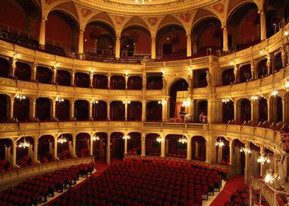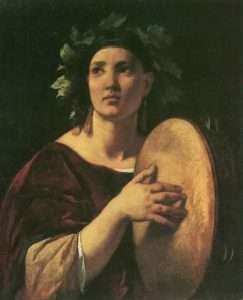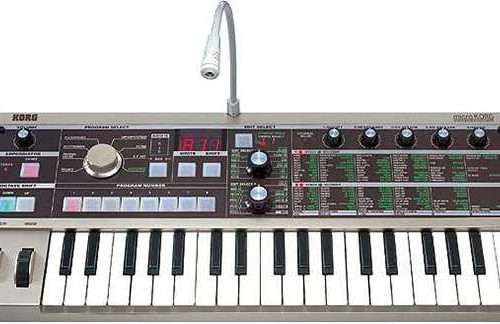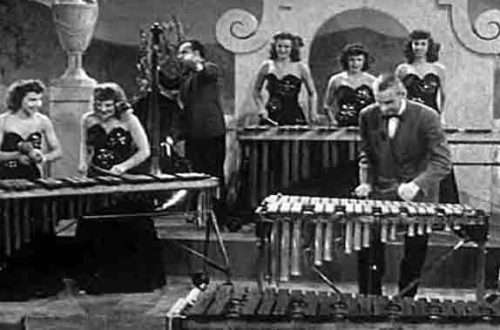
Famous arias from Verdi’s operas
Contents
- “Ritorna vincitor!” (“Come back to us with victory…”) – Aida’s aria from the opera “Aida”
- “Stride la vampa!” (“The Flame is Burning”) – Azucena’s song from the opera “Il Trovatore”
- “Addio, del passato” (“Forgive me, forever…”) – Violetta’s aria from the opera “La Traviata”
- “Pace, pace, mio Dio!” (“Peace, peace, oh God…”) – Leonora’s aria from the opera “Force of Destiny”
- “Cortigiani, vil razza” (“Courtisans, fiends of vice…”) – Rigoletto’s aria from the opera “Rigoletto”
- “Ella giammai m’amò!” (“No, she didn’t love me…”) – King Philip’s aria from the opera “Don Carlos”
 Giuseppe Verdi is a master of musical drama. Tragedy is inherent in his operas: they contain fatal love or a love triangle, curse and revenge, moral choice and betrayal, vivid feelings and the almost certain death of one or even several heroes in the finale.
Giuseppe Verdi is a master of musical drama. Tragedy is inherent in his operas: they contain fatal love or a love triangle, curse and revenge, moral choice and betrayal, vivid feelings and the almost certain death of one or even several heroes in the finale.
The composer adhered to the tradition established in Italian opera – to rely on the singing voice in operatic action. Often opera parts were created specifically for specific performers, and then began to live their own life, going beyond the theatrical framework. These are also many of the arias from Verdi’s operas, which were included in the repertoire of outstanding singers as independent musical numbers. Here are some of them.
“Ritorna vincitor!” (“Come back to us with victory…”) – Aida’s aria from the opera “Aida”
When Verdi was offered to write an opera for the opening of the Suez Canal, he at first refused, but then changed his mind, and in just a few months “Aida” appeared – a sad fairy tale about the love of the Egyptian military leader Radames and the slave Aida, the daughter of the king of Ethiopia, hostile to Egypt.
Love is hampered by the war between states and the machinations of the daughter of the Egyptian king Amneris, who is also in love with Radames. The ending of the opera is tragic – the lovers die together.
The aria “Return to us in victory…” sounds at the end of the 1st scene of the first act. The pharaoh appoints Radames commander of the army, Amneris calls on him to return victorious. Aida is in turmoil: her beloved is going to fight against her father, but both are equally dear to her. She appeals to the gods with a prayer to save her from this torment.
“Stride la vampa!” (“The Flame is Burning”) – Azucena’s song from the opera “Il Trovatore”
“Troubadour” is the composer’s tribute to romantic tendencies. The opera is distinguished by an intricate plot with a mystical touch: with a thirst for revenge, the substitution of babies, fights, executions, death by poison and violent passions. Count di Luna and troubadour Manrico, raised by the gypsy Azucena, turn out to be brothers and rivals in love for the beautiful Leonora.
Among the arias from Verdi’s operas one can also include Azucena’s song from the 1st scene of the second act. Gypsy camp by the fire. Looking at the fire, the gypsy remembers how her mother was burned at the stake.
“Addio, del passato” (“Forgive me, forever…”) – Violetta’s aria from the opera “La Traviata”
The plot of the opera is based on the play “The Lady of the Camellias” by A. Dumas the Son. The young man’s father intervenes in the relationship between Alfred Germont and the courtesan Violetta, demanding that they break off the vicious relationship. For the sake of her beloved’s sister, Violetta agrees to break up with him. She assures Alfred that she has fallen in love with someone else, for which the young man cruelly insults her.
One of the most heartfelt arias from Verdi’s operas is Violetta’s aria from the third act of the opera. The terminally ill heroine dies in a Parisian apartment. After reading the letter from Germont Sr., the girl learns that Alfred has found out the truth and is coming to her. But Violetta understands that she has only a few hours left to live.
“Pace, pace, mio Dio!” (“Peace, peace, oh God…”) – Leonora’s aria from the opera “Force of Destiny”
The opera was written by the composer at the request of the Mariinsky Theater, and its premiere took place in Russia.
Alvaro accidentally kills the father of his beloved Leonora, and her brother Carlos vows revenge on both of them. Complex storylines bring together Alvaro and Carlos, who for the time being do not know how their destinies are connected, and the girl settles as a recluse in a cave near the monastery, where her lover becomes a novice.
The aria sounds in the 2nd scene of the fourth act. Carlos finds Alvaro in the monastery. While the men are fighting with swords, Leonora in her hut remembers her beloved and prays to God to send her peace.
Of course, arias from Verdi’s operas are performed not only by heroines, but also by heroes. Everyone knows, for example, the song of the Duke of Mantua from Rigoletto, but remember another wonderful aria from this opera.
“Cortigiani, vil razza” (“Courtisans, fiends of vice…”) – Rigoletto’s aria from the opera “Rigoletto”
The opera is based on the drama by V. Hugo “The King Amuses himself”. Even while working on the opera, censorship, for fear of political allusions, forced Verdi to change the libretto. So the king became a duke, and the action was moved to Italy.
The Duke, a famous rake, makes Gilda, the beloved daughter of the jester, the hunchback Rigoletto, fall in love with him, for which the jester vows to take revenge on the owner. Despite the fact that the girl is convinced of her lover’s frivolity, she saves him from her father’s revenge at the cost of her life.
The aria sounds in the third (or second, depending on the production) act. The courtiers kidnapped Gilda from her home and took her to the palace. The Duke and the Jester are looking for her. First, the Duke finds out that she is in the castle, and then Rigoletto. The hunchback begs the courtiers in vain to return his daughter to him.
“Ella giammai m’amò!” (“No, she didn’t love me…”) – King Philip’s aria from the opera “Don Carlos”
The libretto of the opera is based on the drama of the same name by I. F. Schiller. The love line (King Philip – his son Don Carlos, in love with his stepmother – Queen Elizabeth) here intersects with the political one – the struggle for the liberation of Flanders.
Philip’s big aria begins the third act of the opera. The king is thoughtful in his chambers. It pains him to admit to himself that his wife’s heart is closed to him and that he is lonely.





